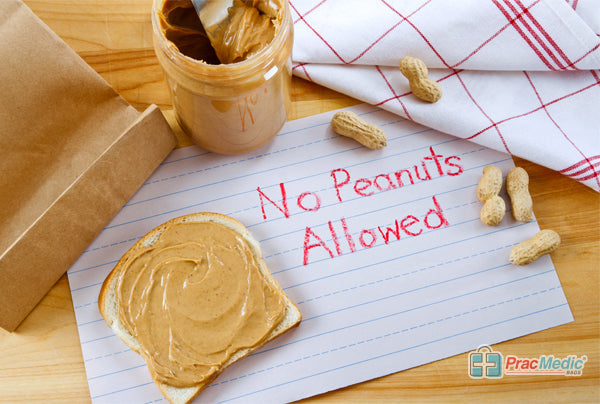
Food Allergy Safety at Home
Share
We often hear the saying that “home is the safest haven from the worries of the world” and that’s for a good reason. When we think of home, we feel relaxed and relieved, and when we’re inside our house, most of us tend to be ourselves, and that feeling of freedom in our own space is our go-to place when we’re stressed at work, school, and even outdoor activities.
It is supported by psychologists and one article from Psychology Today says our home can be our healing space and that a person reacts typically to space, texture, and colors among others differently, that’s why another person’s house will not replace your own home.
This should be the same case if the person has a food allergy. Our home should be the safest place for them where they can be themselves with less stress and worries and with the feeling of acceptance and care.
Food allergy-proofing your home
Food allergy is not the only allergy out there, but we’re going to focus on food allergy with this feature. There are different steps to take when allergy-proofing your home for someone with eczema or asthma and we’ll tackle that on a separate article.
You need to take these significant steps before starting the process of food allergy safety at home:
Banning problem foods in your home

Communication is key when planning on allergy-proofing your home so start consulting your kids and other members of the family on how they will cope and take it if certain foods are banned in your home. Whatever the outcome is, you need to think about how to educate and teach your loved ones on how to live with or without those foods. Please remember that exposure to problem foods may help allergy sufferers to cope up with their allergen. On the other hand, banning problem foods can create a calm environment for someone with a food allergy.
Accept that there are foods that are hard to ban in your home

Having this mindset will make you think of safety because there is food that is hard to live without like eggs, wheat, and milk. If your family is okay without this food on the menu, then you won’t have problems but having the right mindset will prevent you in getting overconfident that may inevitably compromise food allergy safety.
Preparing for special occasions

Another key element with food allergy safety is preparation, and again it should start at home. Not all kids have food allergies, so you need to plan out the best way to keep your loved ones safe for possible problem food and cross-contamination during these special occasions. Always keep a reminder so you can prepare ahead of time and prevent getting caught off guard by the nearest celebration, holidays, or family special occasions that will happen in your own home.
Have allergen-free zones in your house

Depending on the age of your loved ones with food allergy, an allergen-free zone is a must inside your home. Think if you need to have seat designation on the dining table, you may also want to restrict eating in the dining area and kitchen only. This will help avoid unknown food in being eaten and will limit the area to prevent your kids from tasting unknown food secretly.
Always have your medication and epinephrine auto-injectors near you

Your safe zone is incomplete without these emergency kits. Even if you took all the safety precautions like reading product labels, banning problem food, making sure everything is clean and not contaminated by food allergen, etc, you still need to be prepared and anticipate anaphylaxis. Having these medications around with clear, readable labels and instructions will add up to that protected feeling in your home so always have those medications or medicine cases around.
A great way to ensure this is with a high-quality medicine case such as our Sammie Medicine Cases. This will protect your EpiPen or Auvi-Q and other medication essentials and have that complete emergency kit reachable in case of emergency. It has a how-to-card for EpiPen and personal information card if someone in your family has particular medication to save time and avoid mixing it up in time of need.
Importantly, educating our kids and loved ones about their condition is key to their safety. Practicing how to use an EpiPen, preparing on what to do when anaphylaxis strikes, and keeping them calm while in emergency situations are some factors that they can start doing at home as an activity that can surely be useful not only for themselves but to others as well.
We provide allergy accessories to those in need around the world, including EpiPen bag requirements, allergy medicine carrying case, allergy medicine bag, EpiPen carrying case for adults, EpiPen case for school, insulated EpiPen cases.
